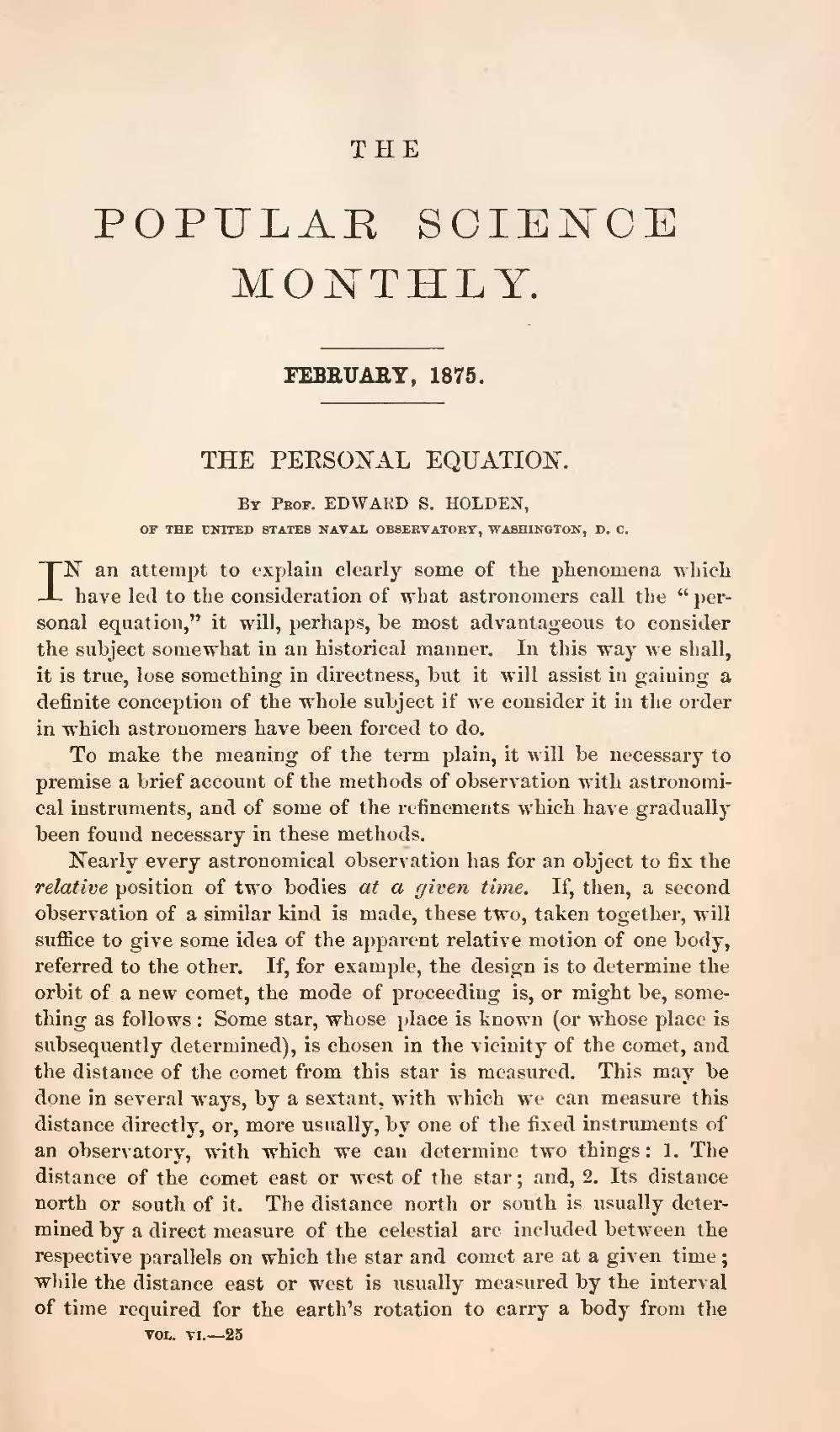THE
POPULAR SCIENCE
MONTHLY.
FEBRUARY 1875
| THE PERSONAL EQUATION. |
By Prof. EDWARD S. HOLDEN,
OF THE UNITED STATES NAVAL OBSERVATORY, WASHINGTON, D. C.
IN an attempt to explain clearly some of the phenomena which have led to the consideration of what astronomers call the "personal equation," it will, perhaps, he most advantageous to consider the subject somewhat in an historical manner. In this way we shall, it is true, lose something in directness, but it will assist in gaining a definite conception of the whole subject if we consider it in the order in which astronomers have been forced to do.
To make the meaning of the term plain, it will be necessary to premise a brief account of the methods of observation with astronomical instruments, and of some of the refinements which have gradually been found necessary in these methods.
Nearly every astronomical observation has for an object to fix the relative position of two bodies at a given time. If, then, a second observation of a similar kind is made, these two, taken together, will suffice to give some idea of the apparent relative motion of one body, referred to the other. If, for example, the design is to determine the orbit of a new comet, the mode of proceeding is, or might be, something as follows: Some star, whose place is known (or whose place is subsequently determined), is chosen in the vicinity of the comet, and the distance of the comet from this star is measured. This may be done in several ways, by a sextant, with which we can measure this distance directly, or, more usually, by one of the fixed instruments of an observatory, with which we can determine two things: 1. The distance of the comet east or west of the star; and, 2. Its distance north or south of it. The distance north or south is usually determined by a direct measure of the celestial arc included between the respective parallels on which the star and comet are at a given time; while the distance east or west is usually measured by the interval of time required for the earth's rotation to carry a body from the

